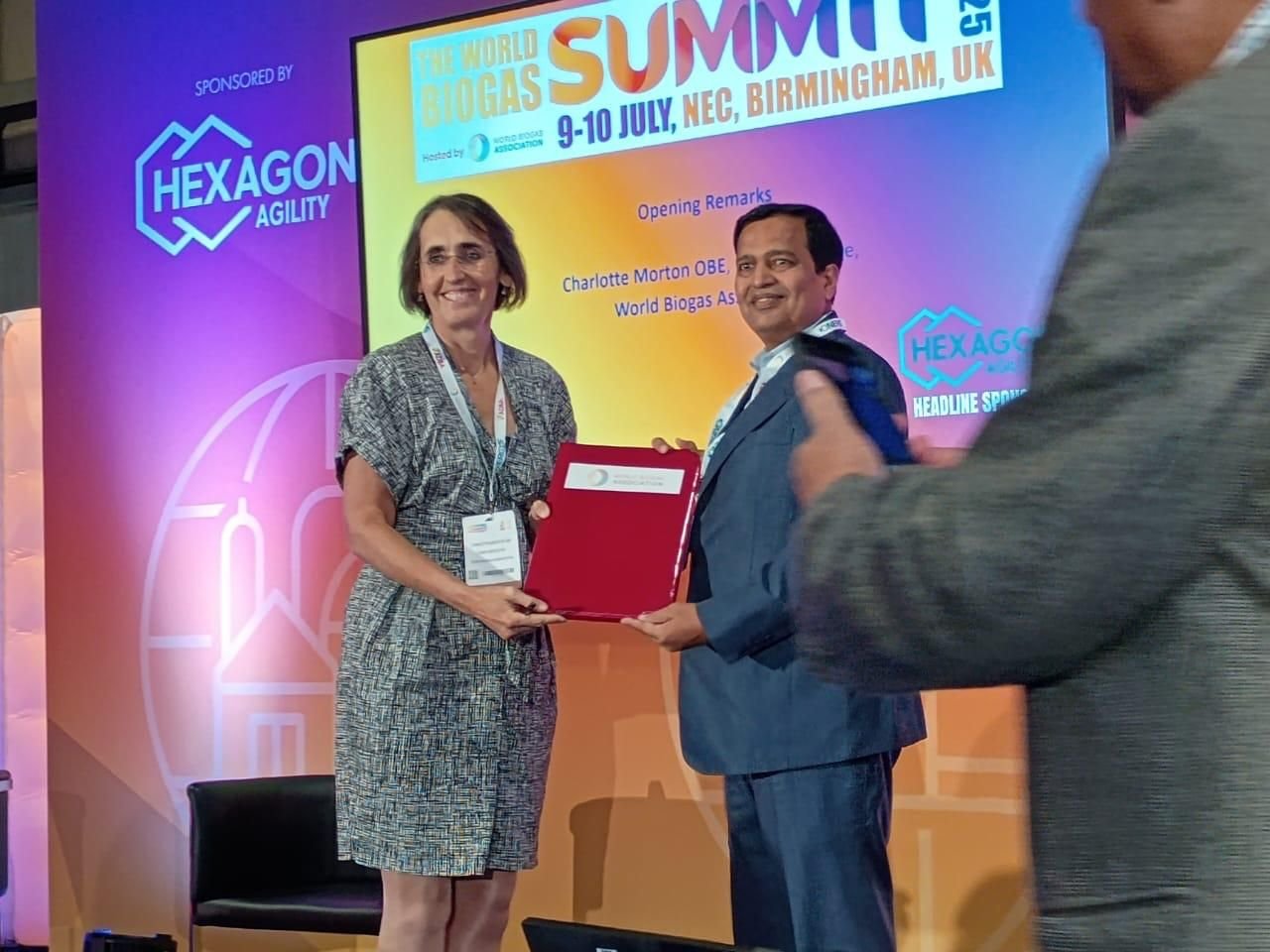Monday, 23 February 2026

Image Source: LinkedIn
In a move set to energize India’s transition toward a circular, low-carbon economy, the Indian Federation of Green Energy (IFGE) has signed a strategic Memorandum of Understanding (MoU) with the World Biogas Association (WBA) at the World Biogas Summit 2025 in Birmingham. The landmark agreement signals a renewed commitment to advancing biogas and compressed biogas (CBG) technologies at scale.
According to a LinkedIn press release shared by IFGE, the collaboration aims to fast-track India’s biogas ambitions by integrating global best practices into local deployment. Under the terms of the MoU, IFGE will lead the on-ground execution of biogas programs in India, while WBA will provide global expertise, facilitate technology transfer, and connect cross-border stakeholders to accelerate sectoral innovation and investment.
The partnership is structured around three core pillars: strengthening the biogas ecosystem, fostering innovation and capital flows, and advancing joint capacity-building and policy engagement. Together, the two organisations aim to support India’s push toward a robust, commercially viable CBG industry that supports energy self-reliance, rural development, and climate goals.
This strategic alliance is timely, as India ramps up efforts under its Sustainable Alternative Towards Affordable Transportation (SATAT) initiative and eyes biogas as a key lever in its net-zero pathway. With rising global interest in biomethane as a renewable substitute for fossil fuels, IFGE and WBA’s collaboration could help India unlock its massive untapped biogas potential—estimated at over 60 million tonnes of oil equivalent annually.
The IFGE-WBA partnership also signals broader momentum around international climate collaboration, especially in hard-to-decarbonize sectors such as transport, agriculture, and waste. By promoting knowledge exchange, technology standardisation, and investor confidence, the MoU is expected to catalyse a new wave of public-private participation in India’s bioenergy sector.
In the words of IFGE: “This alliance reinforces our shared vision for a circular economy and a net-zero future.” With the groundwork laid, the next step lies in execution—turning policy ambition into pipeline-ready projects, and global intent into grassroots impact.